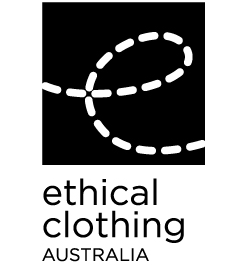Sustainability
Sustainability for Planet and Ethical Treatment of People
At Next State we are continually developing and adapting our approach to Sustainability and Ethics.
We feel a responsibility to people and planet to make sure we are continually improving our business practice. As a business we want to have a positive impact on our supply chain and customers. We want to have a tangible set of actions supported by evidence to show the sustainability progress we are making
Accreditation
Next State Print is accredited by Ethical Clothing Australia for value adding services, such as textile printing, onto Australian made TCF Products.
This means our entire Australian Supply chain has been audited and compliance checked to make sure all obligations to workers are being met from a financial and wellbeing perspective.
More information is available on the ECA Website
At Next State we have invested in technology leading the way in sustainable textile colouration.
We are aware that our consumer habits have direct consequences on people and planet. As a society we make well educated decisions on what we purchase, as part of that decision we now look to include principals of sustainability and ethics.
Digital Printing challenges the thought process of traditional product development, by allowing for a concept to be tested in the market place before committing to larger volume. It allows for a true on demand business practice.
Digital Pigment Printing has no lengthy set-ups and processes involved in the production of the prints, you can print as little as one metre. Digital Pigment Printing is a true testament to a world of mass customisation as opposed to mass production.
- All printing by Next State is produced from our Factory in Melbourne.
- All chemical and colourants used in our printing process are Oeko-Tex approved.
Natural Fabric Digital Print
Direct digital printing is sending a file from a computer to print onto a fabric. At Next State we are proud to be printing a water based Pigment Ink directly onto fabric which is bonded by heat and pressure to the fibre. Unlike many other forms of printing, digital and screen, with pigment ink we utilise no water and have no waste ink during the printing process.
Polyester Digital Print
We use transfer Dye-Sublimation for printing our Polyester and Polyester/Lycra fabrics. Paper is printed with the artwork, then using heat and pressure the artwork is transferred from the paper to the fabric.
The inks are water based and once the paper transfer has taken place the paper is gathered and collected for recycling by Visy once a fortnight.
Textile
At Next State we work with natural and Polyester fabrics. Our fabrics are sourced from both local and international suppliers.
We are proud to offer four organic fabrics in our range, Classic Cotton, Panama Canvas, Organic Canvas and Organic Stretch Jersey. The Organic Stretch Jersey cotton is grown in the prime monsoonal conditions in India, utilising rotating crops to produce world class fibres. The fabric is knitted right here in Australia on the outskirts of Melbourne.
At Next State we look forward to growing our capability in minimising the impact textiles have on our planet. We aim to do this through:
- Increasing our use of recycled yarns made from PET
- Increasing the use of organic yarns
- Encouraging the print on demand method of production
- Working closely with our international suppliers to ensure safe and healthy workplaces with sustainable principles of growing and manufacture.
International Supply
Our international textile supply comes from fibres grown, yarn spun, and fabric woven in China, the Sub-Continent and Europe. Next State and our suppliers have a shared adherence to the Modern Slavery Act of 2015 with a zero-tolerance approach to all aspects of modern slavery and human trafficking.
The below Policy has been provided by our international agent representing our Textile Mills.
Our Supply Chain
We currently work with a variety of International suppliers who support the business activities we carry out from our central offices.
We are currently assessing the risk of modern slavery practices within our supply chain and are concluding that such risks are low in our professional service providers. Any potential risks which arise within our business would be in relation to our supply chain. We will manage this risk through the use of reputable suppliers confirming to us that their own business activities do not involve any form of slavery or human trafficking.
Due Diligence Processes.
As part of our commitment to identify and mitigate modern slavery risks, we will:
- Identify and assess potential risk areas throughout our business as its supply chain and put systems and processes in place to mitigate the risk of modern slavery practices occurring in our supply chain.
- Undertake due diligence when considering taking on new suppliers and regularly reviewing our existing suppliers.
- Consider weather circumstances warrant us carrying out audits on suppliers to ensure they are compliant with our code of conduct.

